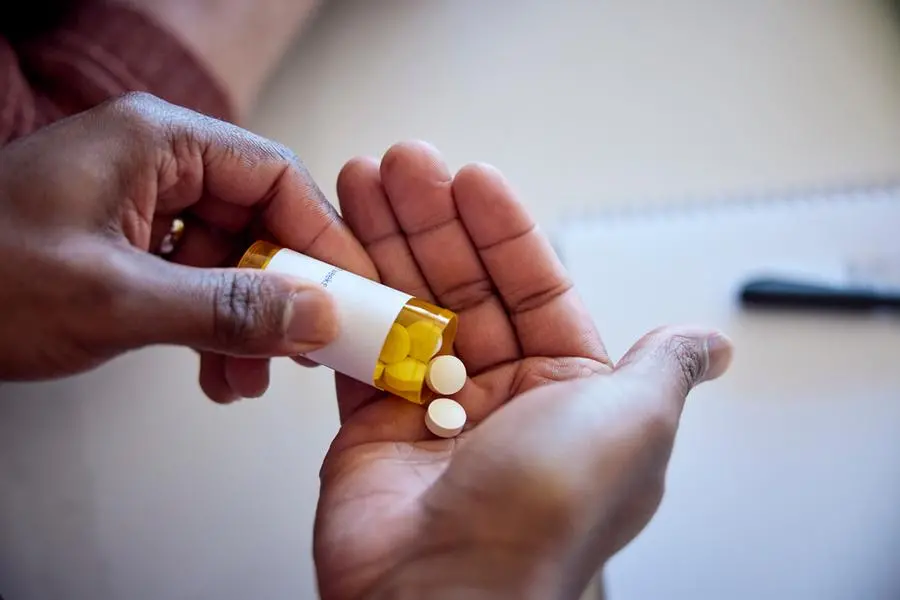PHOTO
Pharmacist and Chief Executive Officer (CEO) of ST. Racheal’s Pharm. Mr.Akinjide Adeosun, has expressed concern over the state of Nigeria’s Pharmaceutical industry whereby 80 percent of inputs used in manufacturing are still being imported.
Specifically, he lamented that just about 30 percent of pharmaceutical brands were manufactured locally, leaving about 70 percent to importation, hence the need for support to change the narrative as “we cannot constantly be dependent on others”
Speaking at St. Racheal’s Pharma Finance Forum held on Wednesday, July 19, with the theme: Manufacturing Renaissance in Nigeria,’’ Adeosun called on national and sub-national governments to support pharmaceutical industries through Public Private Partnership (PPP) models, adding that there is also a need for industry operators to network with the government to have a good grasp of policies and how to align with them.
Related Posts Why Nigerian media monitoring industry must be regulated —Expert ‘Nigeria’s maritime industry loses $100bn annually over non-implementation of Cabotage Act’ US, South Africa, Nigeria top list of reported fraudulent cases globally
He also urged banks and Other Financial Institutions (OFIs), to support pharmaceutical manufacturing industries and the health sector in general.
Identifying the important role financial institutions play in the economy, especially in assisting businesses and sectors grow, the Pharmacist identified challenging areas such as access to loan facilities that need to be fine-tuned to allow for flexibility and affordable collaterals.
He also made a case for renewed hope, whereby he urged for flexible credit terms, realization of a single digit interest rate and a smooth transition to a possible 30 to 50 per cent of local manufacturing.
Adeosun also called for a reduction of the Cash Reserve Ratio (CRR) of Deposit Money Banks (DMB’s) from 32.5 percent to 10.0 percent as similar to what is obtainable in Merchant Banks.
Participants drawn from the industry and the financial sector discussed issues around the theme and came out with other observations and recommendations.
On the trending issue of palliatives, Adeosun averred that the Federal Government should give free medical management palliative for indigent patients and believed that this would enhance national security through improved and large scale local manufacturing.
Pharmacist Ayodeji Alaran, Managing Director PBR Life Sciences, who spoke on “Renaissance: The Size of the Pharmaceutical Opportunities in Nigeria,” reiterated that the Pharmaceutical industry is strategic in providing medication/ health care needs for other sectors of the Nigerian economy.
He called for immediate intervention to support local pharma industries, citing that the COVID-19 further revealed the sector’s vulnerability and its high import dependency with evident shortage of supply.
However, in the midst of that challenge, local industries showed significant increase in manufacturing as they demonstrated resilience and capacity to close gaps. So, if given the needed support, they will continue to grow, Alaran assured.
Providing perspectives from the financial services sector, Mrs Ijeoma Ozulumba , ED/Chief Finance Officer of Development Bank of Nigeria (DBN) explained that only about 17 percent of loans and advances have been made to the manufacturing industry in the country in recent years.
In her presentation on “The Renaissance of Nigerian’s Manufacturing Sector and the Role of Financial Institutions’’, she highlighted some of the contributions of the manufacturing industry to include Economic Growth, Employment, foreign exchange earnings, Technology Transfer and Innovation, Value Chain Development and Import Substitution.
On the roles of Financial Institutions in helping to grow the Pharmaceutical Manufacturing Industry, she said these includes provision of: Access to Capital;Investing and Financing Specialty; Infrastructure Development ;Power Supply; Transport and Logistics enablement; Risk Management and Insurance services; Export Financing especially as share of export had been low among others.
Ozulumba also noted that the African Continental Free Trade Area (AfCFTA) provided opportunities for the local pharma manufacturing industries to integrate and bloom.
She assured that her organization would increase funding opportunities and access for improved operations towards economic growth and development.
On the issue of capacity in production, participants at the forum were of the opinion that there was the need for collaboration and partnership for factories to be optimally utilized, rather than operating in silos and producing under capacity.
Copyright © 2022 Nigerian Tribune Provided by SyndiGate Media Inc. (Syndigate.info).




















